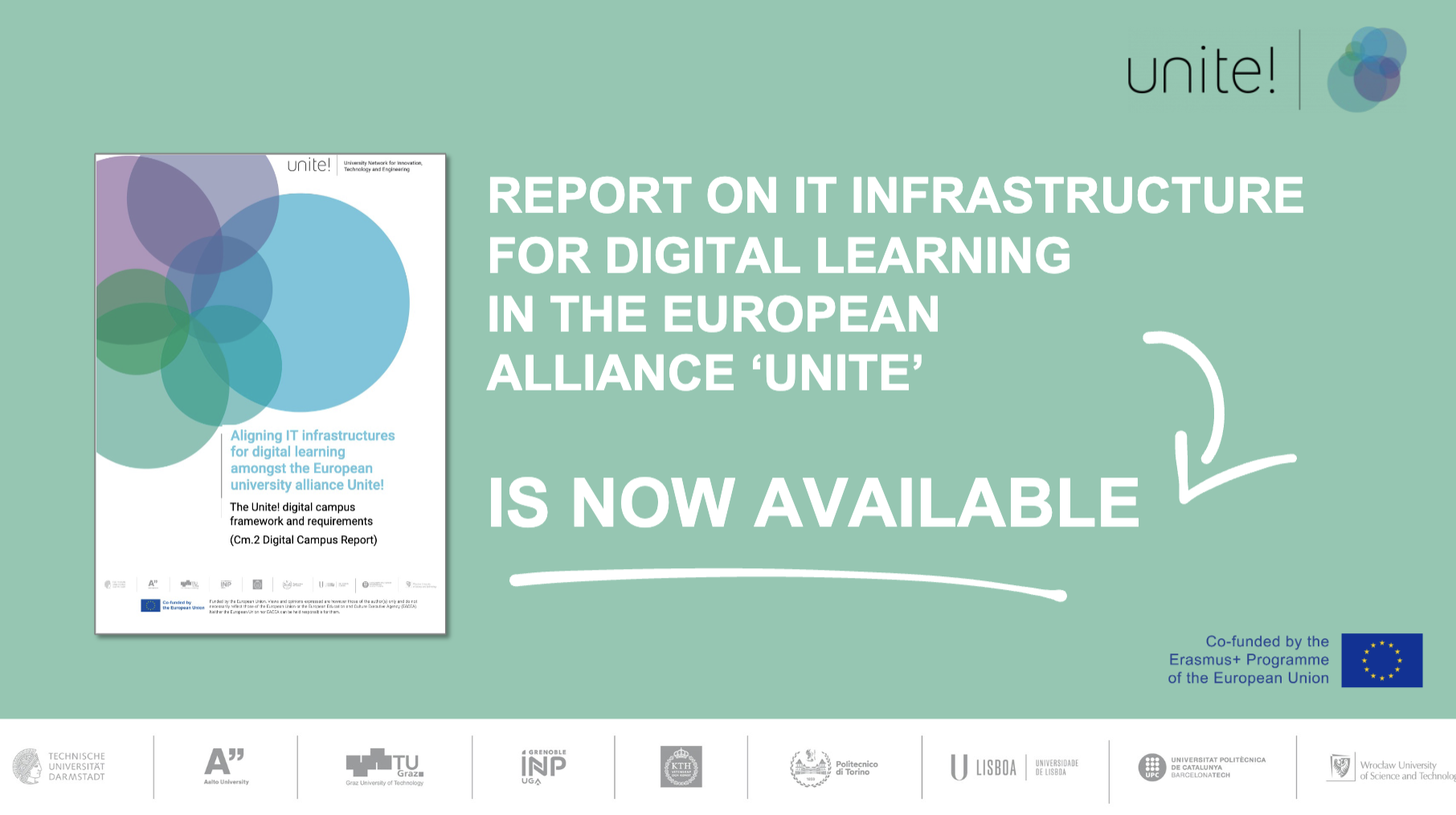After more than one year of exciting work in our community we are a little bit proud to present our first technical report about „Aligning IT infrastructures for digital learning amongst the European university alliance Unite! – The Unite! digital campus framework and requirements„:
The European university alliance „Unite!“ has embarked on a mission to bring together their higher education landscape. As part of this ambitious endeavour, the Erasmus+ Work Package 2, called “Community 2 Digital Campus” or „Cm.2“ for short, was established to shape and implement a cutting-edge digital campus framework within the alliance. The purpose of the present requirement analysis is to collect and list all the key technological, organizational, and legal needs and requirements for an up-to-date European digital campus. This analysis is built upon desk research, utilizing additional methods such as an online survey and stakeholder discussions within the entire Unite! alliance. The requirements analysis results are provided against the background of a short introduction (chapter 1), an overview of platforms for learning management in European university alliances (chapter 2), and a description of the analysis’ procedures, which are the development of descriptions of digital learning and teaching infrastructures of all partners, a survey of the status quo concerning European Student Card Initiative, a survey amongst e-learning support teams, an interactive event for stakeholders and literature and projects desk research (chapter 3). Chapter 4 introduces the federated infrastructures of the Unite! alliance, especially the Metacampus as a federated learning management system based on Moodle. Chapter 5 provides detailed descriptions (including visualizations) of all partners’ digital infrastructures for learning and teaching. Chapter 6 then shares the status quo of the European Student Card Initiative implementation by all partners. Chapter 7 presents five core requirements identified through the analysis, which are the requirements of (a) interoperability between the digital infrastructures of partners and with European standards, (b) the implementation of decision-making concerning IT infrastructure for the digital campus: the Technical Commission, (c) the strategic support for the effective utilization of existing IT systems, especially the Metacampus, (d) clarifying future (learning) scenarios, mobility, and other issues relating to development of the IT infrastructure, and (e) budgetary considerations for the development and maintenance of federated systems. Finally, chapter 8 sketches the next steps and the future of Community 2 Digital Campus and its tasks, and presents (a) the work plan and organisational structure for Community 2 Digital Campus, (b) further development of Metacampus support and resources (T2.3), (c) update of Metacampus and organisational development of support requests, (d) ESCI: improvement of service, (e) eduGAIN maintenance and further development (T2.6), (f) piloting of LTI and integration of MOOCs (T2.6), (g) implementation of meta-data standards for course description (T2.5, T2.6), and (h) support of openness and innovation (T2.1).
The report is open licenced available here:
[repository @ TU Graz]
[ResearchGate]
Furthermore find here some few slides acting as a kind of summary:

Reference: Ebner, M., Schön, S., Alcober, J., Bertonasco, R., Bonani, F., Cruz, L., Espadas, C., Filgueira Xavier, V., Franco, M., Gasplmayr, K., Giralt, J., Hoppe, C., Koschutnig-Ebner, M., Langevin, E., Laurent, R., Leitner, P., Martikainen, J., Matias, J., Muchitsch, M., … Würz, A. (2024). Aligning IT infrastructures for digital learning amongst the European university alliance Unite! – The Unite! digital campus framework and requirements (1.0). Unite! Community 2 Digital Campus, Graz University of Technology. https://doi.org/10.3217/36yen-0wy21
